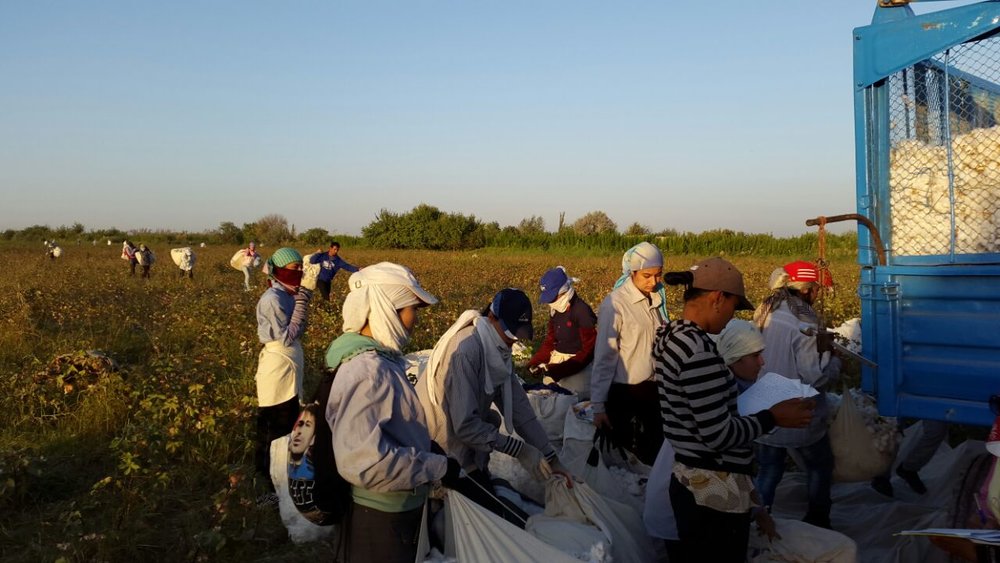2014 Uzbekistan Cotton Harvest Audio & Photo Update

IMAGE: Uzbek German Forum
With the 2014 Uzbek Cotton Harvest officially over, activists have begun to analyze the crisis. In this audio recording accompanied by photos from the harvest, Umida Niyazova of the Uzbek-German Forum (UGF), with the support of Matt Fischer-Daly of the Cotton Campaign, conveys data and stories from the 2014 harvest and talks about how it differs from last year.
In a nut shell: child labor decreased, forced labor of 17+ year-olds increased, corruption continued to be rampant, and transparency remained non-existent.
This year millions of Uzbek citizens were again forced to labor in cotton fields as late as November in order to escape the fees, foreclosures, expulsions, and beatings that befall those who don’t meet government-mandated quotas.
Thanks to pressure from the international community, including the boycott of Uzbek cotton by the majority of Western brands and retailers expressed through RSN’s Cotton Pledge, children under the age of 17 were largely excluded from the harvest. However, their teachers, doctors, parents, and older siblings were not as fortunate. With the drop in child labor, the exploitation of adults has seen an upward trend. More adults than ever were forced into the fields, with conservative estimates totaling three million.
Aside from an increase in adult field-workers, there were also rises in extortion, injuries, and death. The private citizens and business-owners who were fortunate enough to avoid field work were still forced to pay “cotton fees and taxes” to kleptocratic government officials. The bribes are deposited into shadow accounts that are kept off the books. A cargo truck crashed while transporting students to the field injuring 29, and 17 deaths related to the harvest were reported. Written details of the harvest can be found in the 2014 preliminary harvest report released by UGF and the Cotton Campaign.
It is a classic case of two steps forward, one step back. Although the most vulnerable are now out of the fields, tragedy, extortion and death continue. Companies and consumers need to continue to take a stand against this inhumane practice.
